SUMMARY
This is AI generated summarization, which may have errors. For context, always refer to the full article.

MANILA, Philippines – In another questionable remark, the Office of the Ombudsman claimed there is no law mandating the submission by government officials of their Statements of Assets, Liabilities, and Net Worth (SALN).
During plenary debates at the House of Representatives on Wednesday, September 20, for the Ombudsman’s budget for 2024, Gabriela Representative Arlene Brosas questioned the Ombudsman’s confidential funds. The discussion later centered on the Ombudsman’s views about SALNs, which prompted Manila 6th District Representative Bienvenido Abante Jr. to mention the supposed absence of a law governing SALNs.
“But thing is, unang-una, ang sabi ng ating Ombudsman, there is actually no law na we should submit the SALN (But the thing is, first things first, our Ombudsman said there is actually no law mandating that we should submit the SALN),” Abante said, speaking on behalf of the office.
In plenary debates during the budget season, the lawmaker who sponsors the budget of a specific agency usually responds – on behalf of the agency she/he is representing – to interpellations by other lawmakers. In this case, Abante spoke on behalf of Ombudsman Samuel Martires.
Reporters already reached out to the Ombudsman for clarification. The office has yet to respond to reporters’ queries.
Law mandating SALN submission
In reality, there is actually a law that mandates the submission of SALNs.
- Republic Act (RA) No. 6713 or Code of Conduct and Ethical Standards for Public Officials and Employees was passed in 1989 – shortly after the return of democracy in 1986.
- The law was passed “to uphold the time-honored principle of public office being a public trust, granting incentives and rewards for exemplary service, enumerating prohibited acts and transactions, and providing penalties for violations thereof and for other purposes.”
- Section 8(a) of the said law explicitly mentions the submission of SALNs for financial disclosure. Under the said provision, all public officials and employees – except laborers and those working in honorary and temporary capacities – shall file their SALNs under oath.
- The provision also requires them to file a Disclosure of Business Interests and Financial Interests and Financial Connections. Aside from them, their spouses and unmarried children below 18 years old living in their households must also file SALNs and business disclosure.
- RA No. 6713 also lists the offices where government officials and employees should file their SALNs and business disclosure:
- Constitutional and national elective officials – with the Ombudsman
- Lawmakers (senators and representatives) – with the secretaries of the two chambers
- Justices – with the Supreme Court’s clerk of court; judges – with the court administrator
- National executive officials – with the Office of the President
- Regional and local officials, employees – with the deputy ombudsman in their regions
- Armed Forces of the Philippines officers from the rank of colonel or naval captain – with the Office of the President; below the said ranks – with the deputy ombudsman in their regions
- All other public officials and employees – with the Civil Service Commission
- The law’s section 8 is vital to maintaining transparency in government because says that “the public has the right to know their (government officials and employees) assets, liabilities, net worth and financial and business interests.”
Restriction of SALNs
Under Martires, the Ombudsman restricted the public’s access to SALNs.
- In Memorandum Circular No. 1 Series of 2020, the Ombudsman officially restricted access to SALNs. This, despite section 8(d) of RA No. 6713, which allows access to SALNs as long as it’s for “news and communications media for dissemination to the general public.”
- But even before Martires’ 2020 order, his office already stopped giving SALNs as early as 2019. In the previous years before Martires’ directive, the Ombudsman gave media access to the SALNs of officials under their jurisdiction.
- The contradictions against the order eventually reached the Supreme Court (SC), which later ruled that access to SALNs can be regulated. The SC also released an administrative rule that requires requests for SALNs of judges and justices to be approved by the SC en banc first before they can be released.
- In 2020, former ombudsman Conchita Carpio-Morales said Martires’ memorandum “goes against the constitutional principle that public office is a public trust.” Carpio-Morales added that Martires’ memorandum circular violated this principle under RA No. 6713.
Powerful document
SALNs are powerful documents used to review government officials and employees’ wealth:
- SALNs led to the removal of at least two chief justices of the SC: Maria Lourdes Sereno and the late Renato Corona.
- Corona was impeached in 2012 after 20 senators found him guilty of betraying the public trust and culpable violation of the Constitution. He was ousted after failing to properly disclose his wealth.
- Six years later, history repeated itself. Sereno was ousted from her post – this time, by her fellow magistrates. Voting 8-6, the SC en banc granted the quo warranto petition against Sereno on the basis of an invalid appointment. Most of the justices ruled that she violated SALN requirements.
- In 2020, the Philippine Center for Investigative Journalism (PCIJ) said restriction of access to SALNs means “journalists lose a key document crucial in investigations that have shed light on the wealth and business interests of government officials, including past presidents.” A 2019 PCIJ story revealed the wealth of former president Rodrigo Duterte using his available SALNs.
– Rappler.com
1 comment
How does this make you feel?



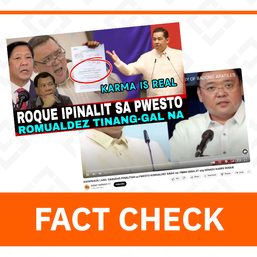
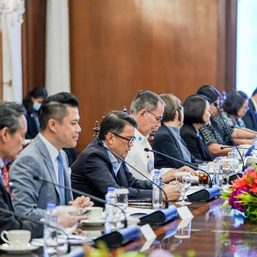
![[OPINION] The First Mode conundrum](https://www.rappler.com/tachyon/2024/03/tl-first-mode-conundrum-03232024.jpg?resize=257%2C257&crop=283px%2C0px%2C720px%2C720px)


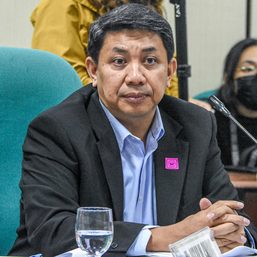

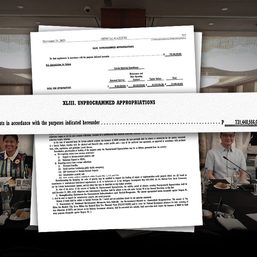


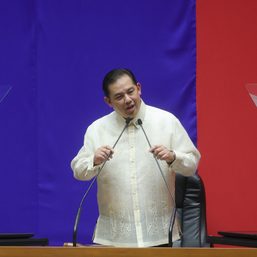
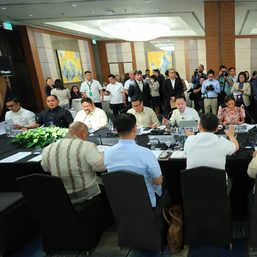
Ombudsman Samuel Martires must either affirm or deny his claim that there is no law mandating SALN submission. This is one of the very socially significant topics in which Rappler must focus its efforts in investigative journalism. Reporters who have already reached out to the Ombudsman for clarification must provide information about the manner and date in which such clarification was done. It is very important to know how long will it take for Ombudsman Martires to respond and what is his specific reply. This will finally tell the Filipino People what kind of government official – Ombudsman Samuel Martires really and truly is.